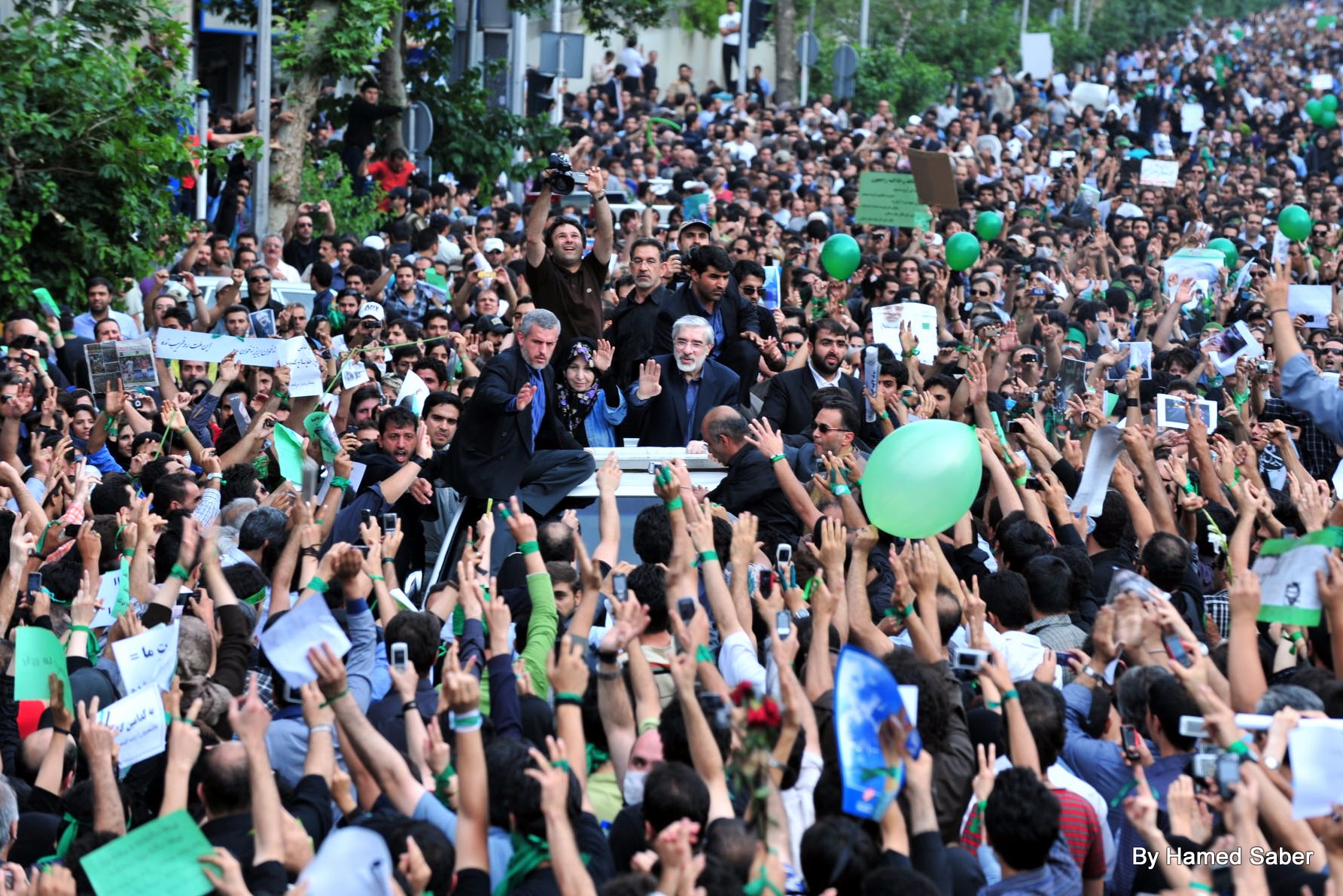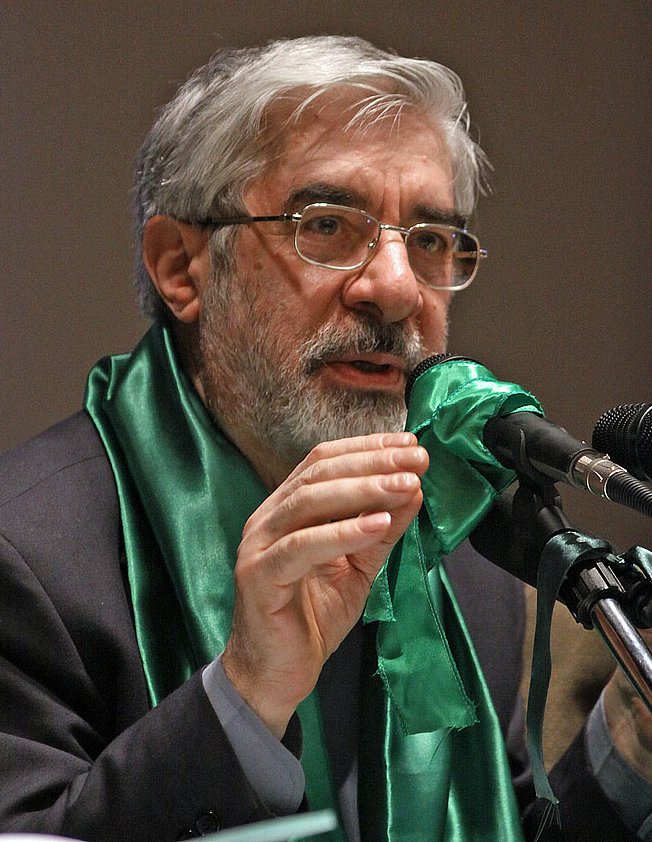
Woman, Life, Freedom…
By Payam Solhtalab of CODIR
After five months of unceasing protest and activism by tens of thousands of young women and men in Iran, demanding that their fundamental human and democratic rights be respected, the political landscape in the country is beginning to shift dramatically.
Mir Hossein Mousavi, who was prevented from taking office having won the 2009 presidential elections following a hugely popular campaign, has published his manifesto for the rescuing of Iran and a political transition away from the decades-old dictatorship.
Mousavi has been kept under house arrest at his closed-off residence in Tehran for 13 years now, along with his wife Zahra Rahnavard – herself a prominent and well-respected activist.
Widely regarded as Iran’s leading opposition figure and a totemic presence inside the country, Mousavi previously served as prime minister for eight years in the 1980s and has been hailed for his careful stewardship of Iran’s then largely nationalised economy during a hugely fraught period for the country – not least the brutal eight-year Iran-Iraq War. He still enjoys widespread support amongst the Iranian public based on his evidenced grasp of the social and economic landscape of Iran, as well as the particular acute challenges that the country faces. The general consensus remains that he is a consummate politician and one responsive to the people’s demands and prevailing public mood.
While having articulated a political vision for the future of Iran that has attracted significant support inside the country, the veteran opposition leader has ruled himself out of heading-up the envisaged campaign on account of his current precarious situation and age. (Mir Hossein Mousavi is almost 81 and years of incarceration and persecution by the authorities have taken their toll on him.) The public entry of Mousavi into the ongoing debate over the direction and future of the “Woman, Life, Freedom” movement has, in effect, all but guaranteed that the right-wing and extreme-nationalist monarchists – who have been running a massively well-resourced campaign from abroad – will fail in their endeavours to bring about unilaterally-imposed regime change in Iran and return the country to a system of monarchical dictatorship discredited, rejected, and overthrown by the Iranian people in 1979.

At the very least, Mousavi’s intervention and its warm reception within Iran has punctured a large hole into the hitherto largely unchecked narrative of the exiled monarchist camp that claims they are the sole arbiters of the Iranian people’s will or the natural inheritors to a post-Islamic-Republic Iran.
In his statement, which has been warmly welcomed by a wide spectrum of working-class, democratic, and progressive forces inside Iran, Mousavi calls for a peaceful but comprehensive and definitive process of root and branch overhaul in the country – one that would fundamentally bring an end to the theocratic dictatorship.
On the eve of the 44th anniversary of the 1979 Iranian Revolution on Saturday 11 February, Mousavi publicly called for the “fundamental transformation” of a political system that he stated is now facing an irreversible crisis of legitimacy. He went on to call for a process of sweeping political changes as a logical next stage for the protests triggered in September 2022 by the death in custody of a 22-year-old woman, Mahsa Amini.
Mousavi has stated that only the formation of a secular democratic republic based on the views, votes, and actions of men and women; young and old; able-bodied and disabled; and all religious and ethnic minorities, as well as all people of colour, can guarantee and secure the future of Iran.
Central to Mousavi’s vision is his proposal for the urgent drafting and ratification of a new national constitution in order to rescue Iran. Pursuant to this, he calls for the holding of a nationwide referendum on the establishment of a Constituent Assembly body made up of bona fide people’s representatives, inclusive of all political-ideological strands and ethnic-national groups, tasked with the drafting of a new national constitution – including provision for the establishment of a new state and military structure rooted in the rule of law, in accordance with human rights standards, and arising from the will of the nation.
“The people have the right to make fundamental revisions in order to overcome [these] crises and pave the way for freedom, justice, democracy and development,” continued Mousavi in his statement.
The veteran politician charged leaders of the theocratic regime with having “refused to take the smallest step towards realising the rights of citizens as defined in the [country’s] constitution…”
“If a nation is focused and interested in [establishing] a new order, the previous structure will collapse whether that is within its designs or not […] Iran and Iranians are in need of, and ready for, a fundamental transformation, the main defining lines [features] of which are drawn by the clean movement [under the banner of] Woman, Life, Freedom.”
Of crucial importance is the fact that most socially progressive entities inside Iran, including the country’s trade unionists and peace activists, are putting their support behind Mousavi’s statement. And it is particularly telling that this reality has served to enrage not only the regime and its supporters, but also those currents within the diaspora that, at huge expense, have spent months projecting Reza Pahlavi (the son of the deposed shah) as the rightful leader of Iran in-waiting over the heads of the courageous and long-suffering Iranian people.
On Wednesday 14 February, Professor Ardeshir Arjomand, the exiled spokesperson for Mousavi and the Coordinating Council of the Iranian Green Movement, tweeted: “What are you afraid of that makes you threaten the signatories of the statement of support [for Mousavi’s intervention] into withdrawing their signatures? You who claim that all of the people [of Iran] are your supporters! What danger do people, who have no other weapons than their tongues and pens, pose to you? Did Mir Hossein [Mousavi] request anything other than the obeying of the people’s vote [the heeding of the people’s demands]?”
CODIR fully concurs with and joins its trade union and civil right activist counterparts in Iran in their expressions of support for the principled intervention of Mir Hossein Mousavi in calling for a popular political transition away from the Islamic Republic dictatorship – one driven and overseen by the Iranian people themselves for a democratic, progressive, and socially just Iran… An Iran that ultimately embodies and does justice to the revolutionary cry of “Woman, Life, Freedom.”
For more information on CODIR and developments in Iran, please visit www.codir.net and follow the organisation on Twitter (@CODIRInfo).
Payam Solhtalab is a peace activist and member of the Central Executive Council of CODIR.












 Posted in
Posted in 











